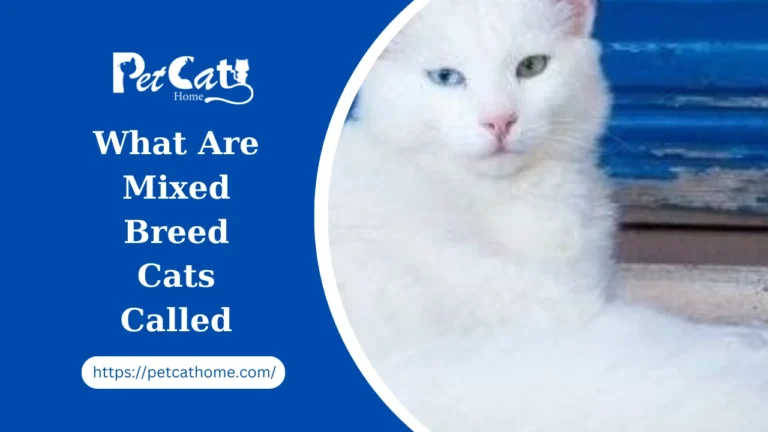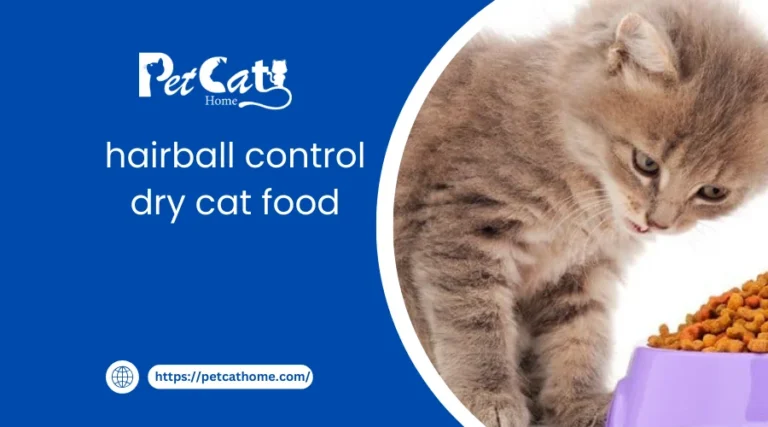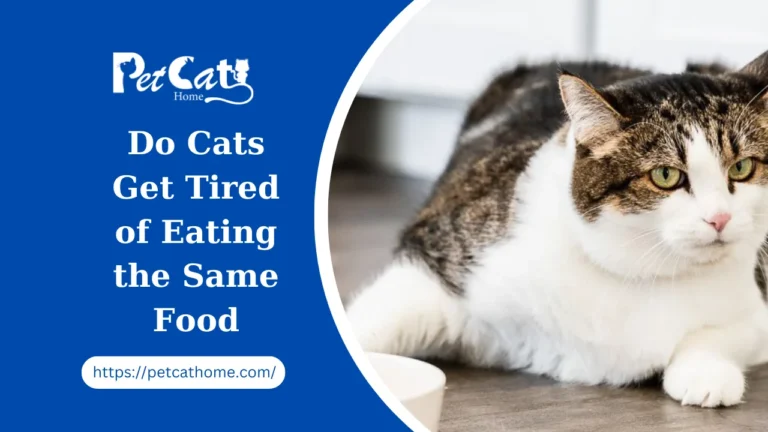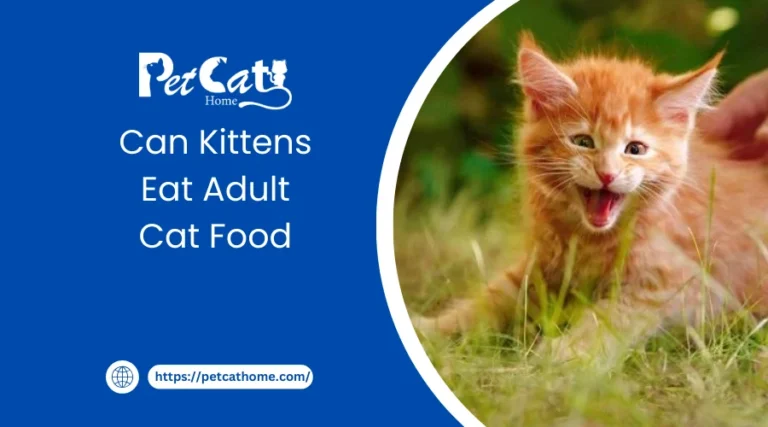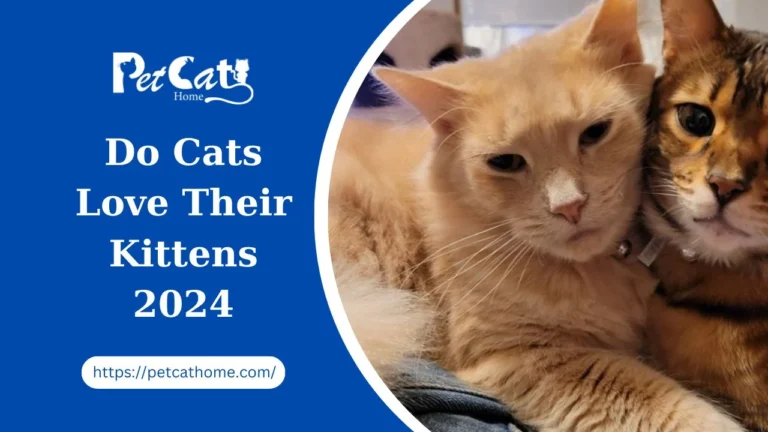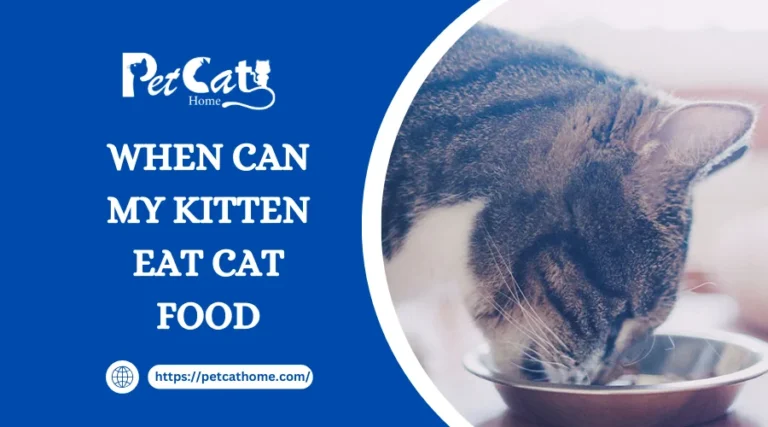Best Cat Breeds For Emotional Support
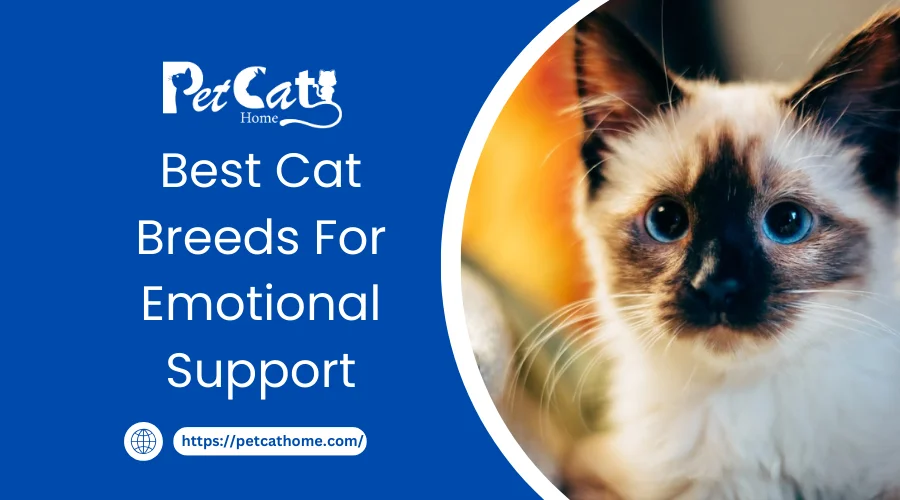
Cats can naturally offer their owners consolation, company, and emotional support. Certain cat breeds stand out for their exceptional qualities in offering emotional support to those looking for a furry friend to provide understanding and comfort.
Because of their loving disposition, keen perception, and peaceful demeanor, these feline friends have earned a reputation as the greatest at easing emotional distress. Let’s explore the world of the top cat breeds designed to provide their human counterparts with unmatched emotional support.
The Best Emotional Support Cat Breeds
Cats are a great choice for emotional support animals for people with mental health issues. They are far more eccentric and less attention-seeking than dogs, but they can bring humour and fun into everyday life. The following six breeds of cats are well-known for their capacity to uplift anyone’s spirits.
Ragdoll
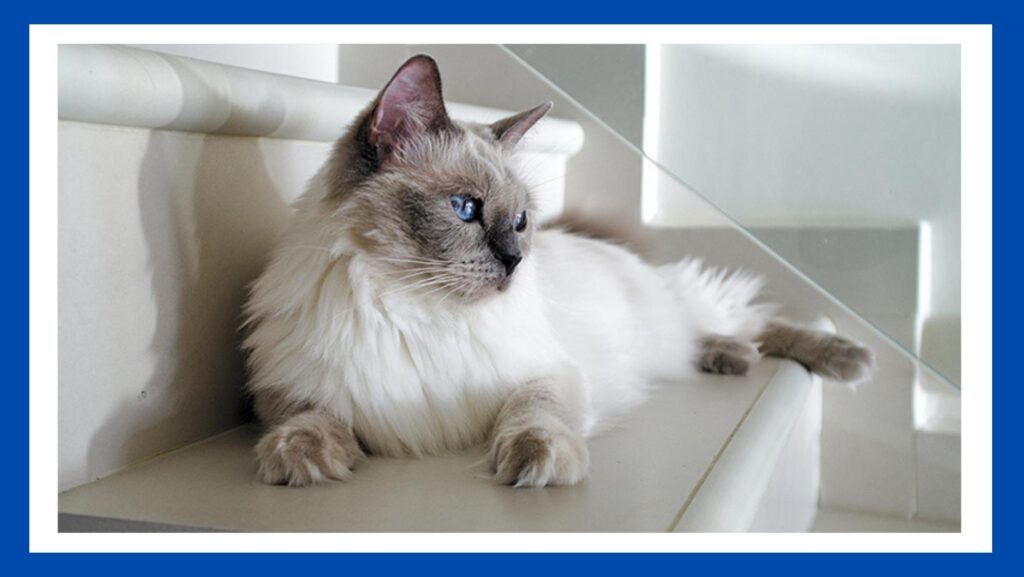
The Ragdoll cat breed is well known for being kind and loving. These cats are renowned for their gorgeous blue eyes, smooth coats, and laid-back personalities. Ragdolls get their name because they frequently tend to go limp when picked up, just like a ragdoll.
They are excellent companions for people looking for emotional support because of their outgoing and amiable nature. Ragdolls are remarkably adept at gauging their owners’ emotions and offering consolation when things are tough. Their ability to adapt to different environments results from their calm and laid-back nature, making them the perfect pets for anyone looking for a calming presence in their lives.
American Bobtail
The American Bobtail is a unique and endearing cat breed distinguished by its eye-catching appearance and amiable disposition. These cats have a distinctive and endearing appearance due to their short, stubby tail, which can be straight, curved, or slightly kinked.
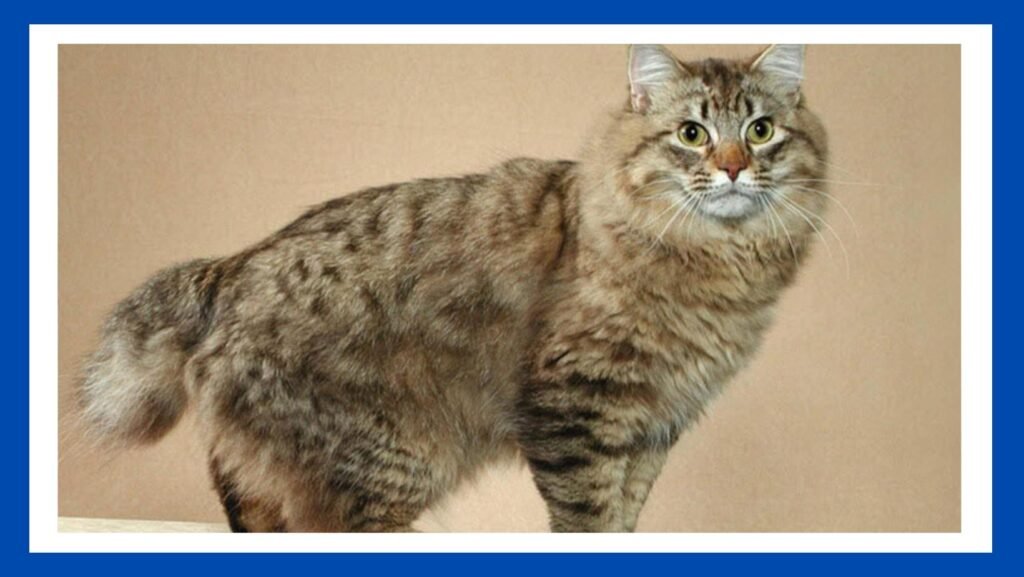
Americans needing emotional support find great companions in American Bobtails because of their gregarious and playful nature. They enjoy developing close relationships with their human family members and are very adaptive. These cats, well-known for their intelligence and loving disposition, frequently look for social interaction and are quick to react to their owner’s feelings, offering consolation and company when needed. They are an excellent option for anyone looking for a committed feline friend because of their loving and loyal nature.
Manx
A unique breed of cat, the Manx cat is distinguished by either having no tail or a very short tail. These cats, native to the Isle of Man, are distinguished by their sturdy physique and rounded rear ends.
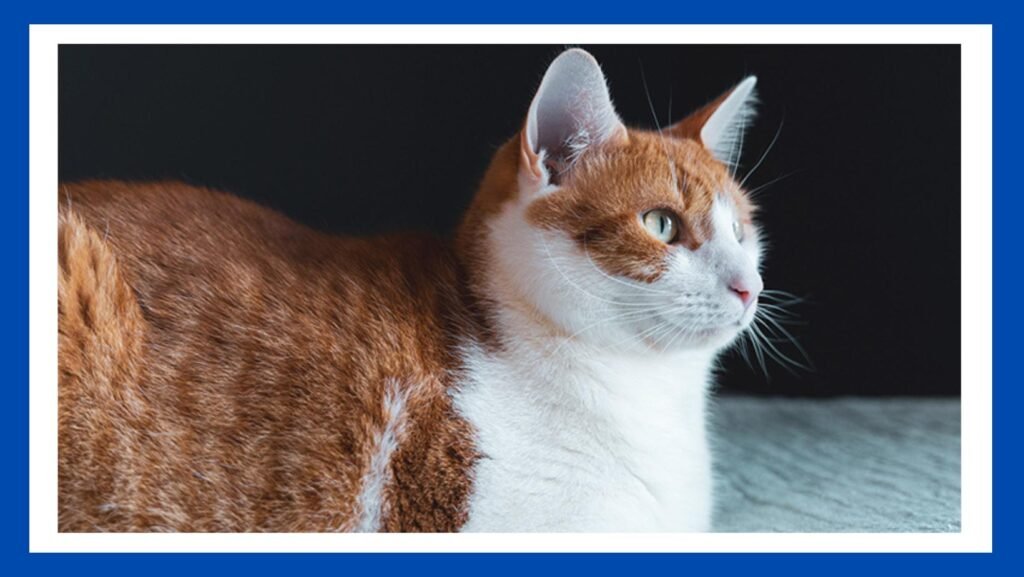
Manx cats are well-known for being amiable and loving. They can develop close relationships with their owners and offer dependable emotional support. Because of their playful nature, they make intelligent and entertaining companions, and their adaptability lets them easily fit into various home settings.
Manx cats are graceful and energetic. Despite their tailless or short-tailed appearance, they love interactive play and spend quality time with their human companions. Due to their attentiveness and loyalty, they are highly valued pets for those looking for a loyal and compassionate feline friend.
Persian
The Persian cat breed is renowned for its magnificent appearance and opulent, lengthy fur that attracts attention. Persians have a strikingly captivating appearance, characterized by their large expressive eyes and characteristic flattened faces.
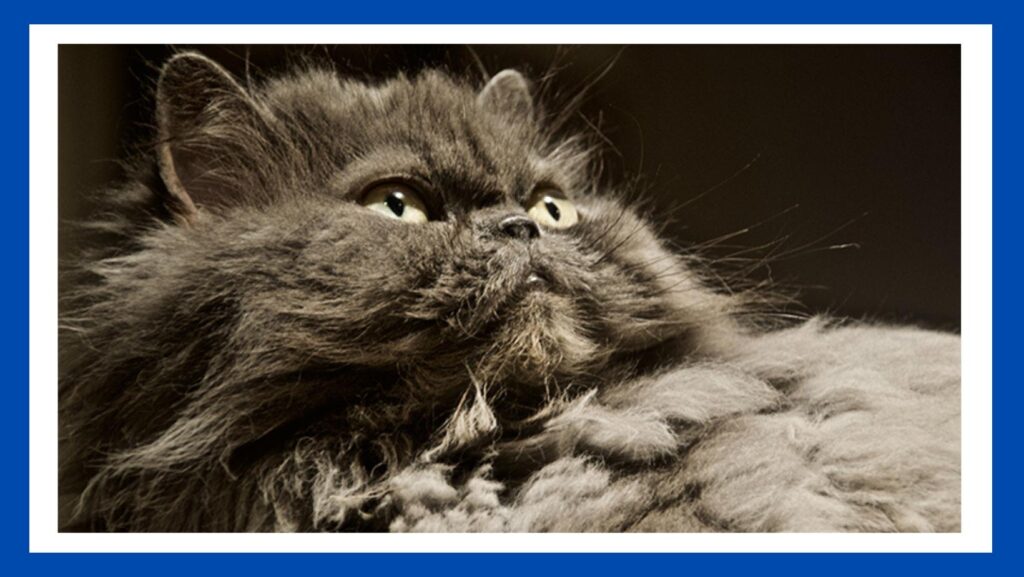
Persians are renowned for their calm and gentle nature, which goes a long way toward explaining why they make such great emotional support providers. These cats love to lounge in calm settings and enjoy a tranquil atmosphere. Thanks to their affectionate and laid-back nature, they can provide comfort and companionship to their owners, and they frequently grow to be devoted and loving companions.
Persians are peaceful and calm people who frequently seek quiet time with their human friends. Because of their calming presence and loving nature, Persians are popular with people looking for a devoted and consoling feline friend.
Russian Blue
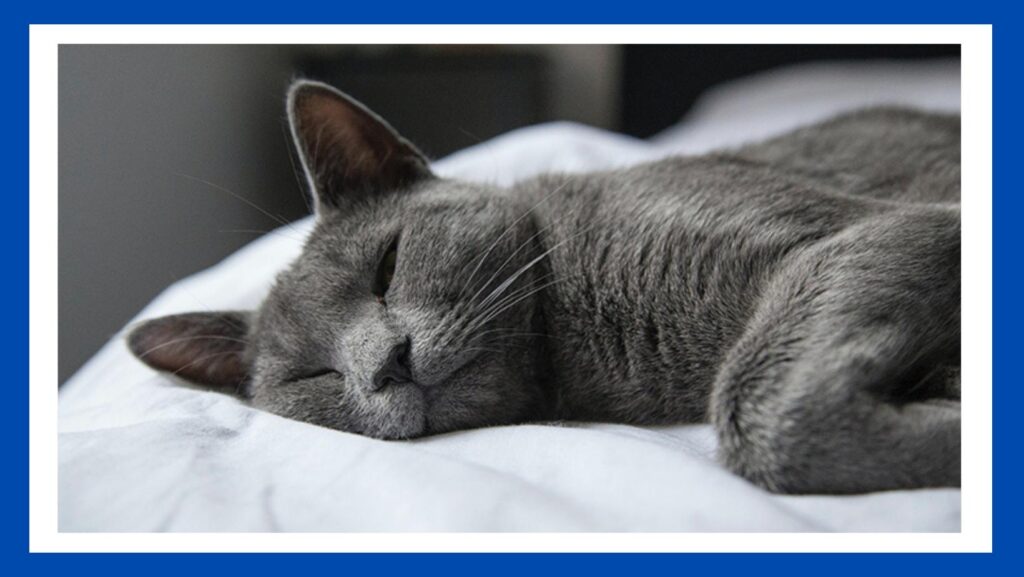
The captivating Russian Blue cat breed is renowned for its eye-catching green eyes and stunning blue-grey coat. This breed has a sophisticated appearance that is sleek and elegant.
Russian Blues are recognized for their quiet but loving disposition. They build close relationships with their owners and offer steady but nuanced emotional support. These cats are very loyal to their human family members but generally shy around strangers. Because of their gentle and calm disposition, they are wonderful companions for people looking for a gentle and understanding presence.
Maine Coon
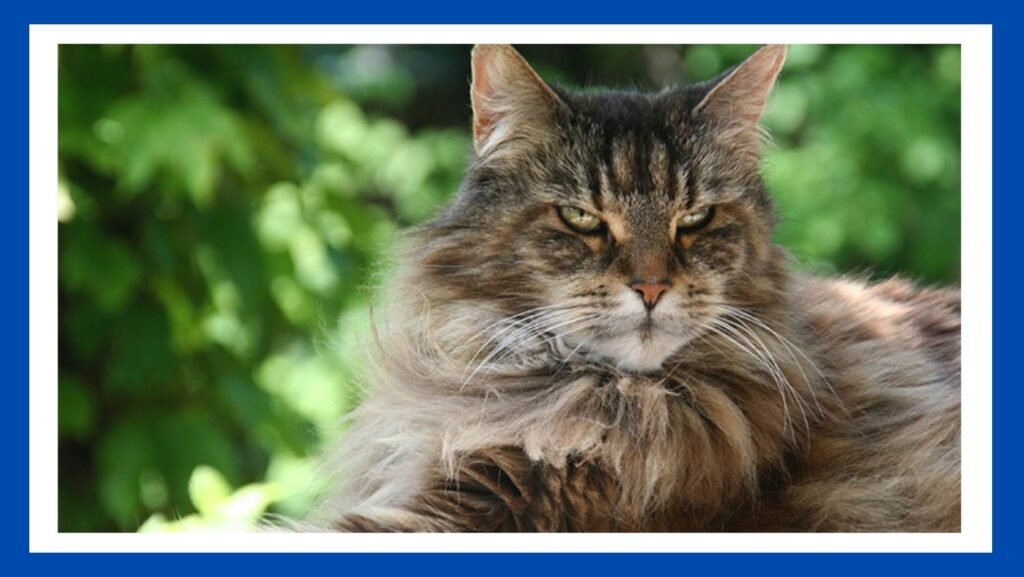
The magnificent and commanding Maine Coon cat breed is distinguished by its enormous stature, tufted ears, bushy tail, and tufted paws. Maine Coons are distinguished by their gregarious and extroverted nature, which has earned them the nickname “gentle giants” in the cat world.
These cats are remarkable not only for their enormous size but also for their friendly and loving dispositions. Maine Coons are well known for developing close relationships and providing steadfast emotional support to their human companions. They are great companions for people looking for consolation and understanding because they are frequently described as kind and gentle.
Can Cat Breeds Be Emotional Support Animals?
Cats indeed make excellent emotional support animals (ESAs). Emotional support animals are pets that provide therapeutic benefits to people facing emotional or mental health challenges. Even though service animals are trained to carry out specific tasks for their disabled owners, emotional support animals (ESAs) offer comfort, companionship, and emotional support just by being in their owners’ presence.
Cats make wonderful emotional support animals because of their loving disposition and innate understanding. Their ability to build strong bonds with their owners, calm demeanor, and natural empathy makes them ideal for offering consolation and companionship to people experiencing stressful situations, anxiety, depression, or other emotional challenges.
The Best Emotional Support Cat Breeds for Your Different Needs
Examining the realm of emotional support cats reveals various breeds, everyone with distinctive characteristics. Selecting the ideal feline friend can have a big impact on giving the precise emotional support that’s needed. In this article, we examine several cat breeds, stressing their unique qualities and ways in which they meet diverse emotional requirements.
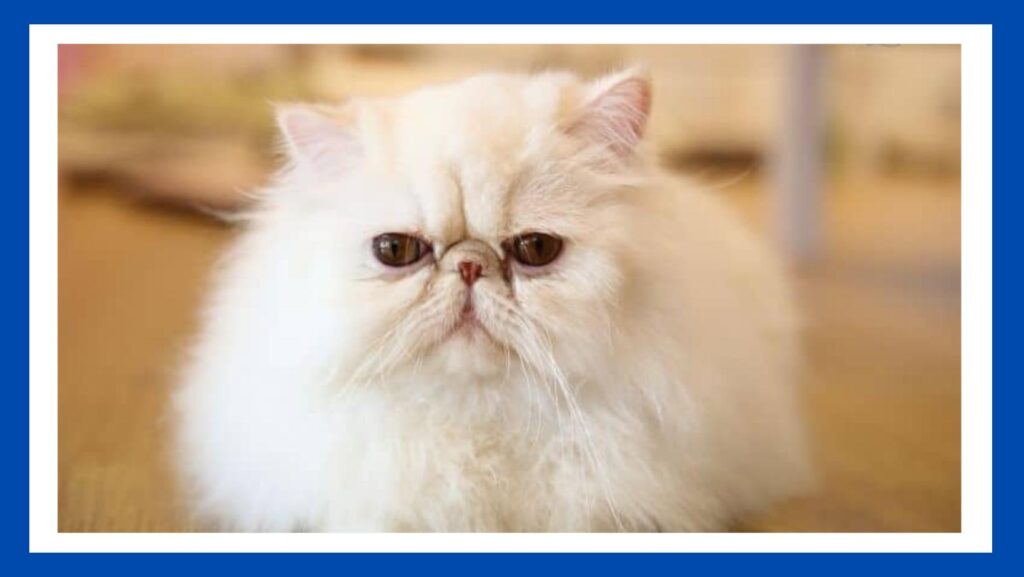
Quiet Allies
- Persian: Recognized for their calm demeanor and soft disposition, Persians provide a peaceful ambiance, perfect for individuals who strive for serenity and tranquillity in their everyday existence.
- Ragdoll: Ragdolls are excellent at offering comfort and dependable companionship because of their easygoing nature and keen understanding.
Lighthearted Assistance
- Maine Coon: Maine Coons are playful and loving, making them the ideal companion for people who want to be playful and have someone to talk to.
- American Bobtail: Through engaging interactions, American Bobtails can be a great way to provide emotional support because of their outgoing nature and playful antics.
Heartfelt Companions
- Siamese: Known for their loud personalities and intense attachment, Siamese cats provide devoted company, frequently establishing robust relationships and providing unwavering emotional support.
- Burmese: Distinguished by their people-oriented disposition, Burmese cats offer steadfast love and company, making them perfect for individuals needing continuous assistance.
Flexible and Perceptive
- Russian Blue: Serene but reserved, Russian Blues provide their owners with steady but nuanced emotional support, fostering a peaceful atmosphere.
- Manx: Easily adapting to various emotional needs, Manx cats are devoted and adaptive, making strong bonds and offering steadfast support.
Best Cat Breeds for Physical Affection – Siamese
Siamese cats are incredibly gregarious and develop close relationships with their human partners. They are renowned for wanting to be near their owners and frequently seek out physical interaction by snuggling, perching on laps, or curling up by their side. They are perfect for giving affectionate support that entails continual touch and interaction because they need physical proximity.
These kitties are vocal and affectionate, letting their distinct meows communicate their need for care and attention. They can express their desire for physical affection thanks to their communicative nature, which ensures they interact with their owners.
Siamese cats adore being a part of their owners’ everyday activities and thrive on human interaction. Their loving conduct goes beyond simply being close.
Best Cat Breeds for Children with ADHD – Ragdoll
Because of their kind and collected nature, ragdoll cats are a great option for kids with ADHD. They can offer support and companionship in these circumstances.
Ragdolls are renowned for being laid back and easygoing, which is advantageous for kids with ADHD. These cats frequently adjust well to different circumstances, remaining composed and patient, which can aid in creating a calming and stable environment for kids who might benefit from a steady and quiet presence.
Ragdolls are wonderful companions for children because of their loving and understanding nature. They get along well with active or energetic children because they frequently enjoy being handled and have gentle interactions. Ragdolls are known to develop close relationships with their human family members, providing consolation and company without becoming unduly demanding or agitated. This is especially beneficial for kids who need continuous emotional support.
Best Cat Breeds for Anxiety – Maine Coon
Because of their loving and carefree disposition, which can offer comforting company and support, Maine Coon cats are a great option for people who are experiencing anxiety.
Maine coons are renowned for having laid-back and amiable dispositions. They are excellent companions for people who are anxious because of their loving nature and gentle demeanor. These felines frequently develop close relationships with their owners, providing them with ongoing company and comfort.
Their easygoing yet playful demeanor enables them to adjust to various circumstances, fostering a serene and cozy atmosphere. Generally friendly and loving, Maine Coons take pleasure in spending time with their human friends, whether it be through interactive play or tender cuddles.
Maine Coons’ massive stature and robust physique frequently add to their peaceful demeanor. Their loving demeanor and eagerness to be close to their owners can give people a feeling of stability and security, which is especially helpful for those who are anxious.
Best Cat Breeds for People Living Alone – Manx
The Manx cat breed is a great option for single people because of their versatile and devoted personality, which makes them ideal housemates.
Manx cats are renowned for developing close relationships with their owners and providing steadfast companionship and loyalty. Because of their loving and people-oriented dispositions, they are excellent companions for people looking for consistent companionship and support in a single-living setting.
Thanks to their adaptability, they can adapt well to various living situations, including living alone. Manx cats are social creatures, but they also enjoy being independent and amuse themselves, which makes them good companions for people who value their privacy or have hectic schedules.
Best Hypoallergenic Emotional Support Cat Breeds – Balinese
The low-shedding coat of the Balinese cat breed produces fewer allergens than other breeds, making it a hypoallergenic choice for people needing an emotional support animal.
Balinese cats have less Fel d 1 protein, a common allergen found in cat saliva and skin glands, despite having long, silky coats. Some people with allergies to cats may find them more tolerable due to this decreased production of proteins.
Due to their affectionate and gregarious nature, Balinese cats make wonderful emotional support companions. They are renowned for developing close relationships with their owners and offering understanding and constant companionship. Their wise and perceptive dispositions enable them to perceive their owners’ feelings and provide consolation and assistance when required.
Best Cat Breeds for Depression – Russian Blue

Because of their quiet, serene nature and capacity to offer steady, quiet companionship, Russian Blue cats can be an excellent option for people going through a depressive episode.
Russian blues are recognized for their quiet, devoted personalities. Because of their gentle and sensitive nature, they are great companions for people experiencing sadness or depression. These cats frequently create a calm and serene environment, which can help their owners feel more at ease.
Because of their intuitive grasp of human emotions, Russian Blues can detect mood swings and provide silent but resolute support. They are well known to be wise and alert, offering calm companionship without being unduly demanding.
How to Choose an Emotional Support Cat Breeds
Finding a companion that fits your needs and lifestyle requires careful consideration of many factors when selecting an emotional support cat breed. To help with your selection process, follow these steps:
- Determine What You Need: Decide what kind of emotional support you need. Do you require constant company, a gentle presence, or playful interaction? Think about your feelings and what you’re looking for in a cat.
- Research Breeds: Examine the traits of various cat breeds. While some breeds are more playful or independent, others are recognized for their calm and loving nature. Examine how these characteristics match your needs for emotional support.
- Take Allergies Into Account: If you suffer from allergies, choose hypoallergenic breeds that produce fewer allergens. Balinese and Russian Blues are considered hypoallergenic because they produce fewer allergenic proteins than other breeds.
- Lifestyle Compatibility: Evaluate your daily schedule and living circumstances. Certain breeds demand more care, exercise, or attention than others. Consider getting a cat that suits your lifestyle to guarantee a happy relationship.
- Temperament Match: Choose a breed of cat that best suits your personality in terms of temperament. For example, if you’d rather have a lovable, cuddly cat, you might want to look into breeds like Maine Coons or Ragdolls.
- Interaction and Bonding: Look into breeds with a reputation for developing close relationships with their owners. Siamese and Burmese cats, in particular, are frequently very gregarious and build strong bonds with their owners, providing ongoing companionship and support.
- Visit Shelters or Breeders: Spend time with various breeds and learn about their personalities. If you want to meet the cats and see their behavior up close, consider going to shelters or reliable breeders.
- Consult with Professionals: Seek advice from veterinarians, breeders, or animal behaviorists. They can offer insightful information about the traits of particular breeds and help you make a wise choice.
- Personal Connection: In the end, pick a cat with whom you share a personal bond. Pay attention to your feelings and instincts as you interact with the cat. A strong connection frequently indicates a good fit for emotional support.
How to Get an Emotional Support Cat Letter
- Assess Need: To begin with, make sure you are eligible for an emotional support animal (ESA) by providing proof of a diagnosed mental health illness that significantly affects your day-to-day functioning, such as PTSD, depression, or anxiety.
- Seek Advice from a Mental Health Professional: Make an appointment with a licensed mental health practitioner, such as a psychologist, psychiatrist, or therapist, so they can assess your situation and decide whether you would benefit from an ESA.
- Address ESA Option: Consider incorporating an emotional support cat into your treatment regimen during your session. Describe how having the cat around would help you feel better and reduce your symptoms.
- Request an ESA Letter: If your mental health provider concurs that having an ESA would be helpful, ask them to write an emotional support animal letter on their official letterhead. This letter should include specifics like your diagnosis, the therapeutic benefits of an ESA, and a recommendation for an emotional support cat.
- Letter Content: Ensure the ESA letter contains the professional’s contact details, license information, and a declaration attesting to your requirement for an emotional support cat to reduce symptoms associated with your diagnosed condition.
- Adhere to Legal Guidelines: Verify that the ESA letter complies with applicable laws. It should be dated and signed by the expert, and include their professional assessment of the necessity of having an emotional support cat in your home.
- Preserve Documentation: Keep a copy of the ESA letter for your records. It’s necessary for many things, such as housing and air travel, since it acts as proof that permits you to live and travel with your cat, even in places where pets are not permitted.
- Renewal and Review: ESA letters should normally be renewed annually. Make sure your emotional support cat is still a crucial component of your treatment plan by having regular reviews of your mental health treatment with your mental health professional.
Recall that the best way to obtain an ESA letter is to work with a licensed mental health professional through proper channels. Steer clear of internet services that guarantee instantaneous ESA letters without conducting a thorough assessment, as these may not be legally valid.
Cat Breeds for Emotional Support
FAQs
1. What is an emotional support cat breeds (ESA)?
An emotional support cat is a companion animal that offers therapeutic benefits to people with mental health conditions. They provide solace, company, and emotional support to lessen the symptoms of depression, anxiety, and other emotional difficulties.
2. How do I qualify for an emotional support cat?
It would help if you had a diagnosed mental health condition that substantially interferes with your daily life to be eligible for emotional support care. If an ESA is a beneficial addition to your treatment plan, a licensed mental health professional can assess your condition and make that determination.
3. Can any cat be an emotional support cat?
Any cat can be a great source of emotional support. Still, some breeds are better known for their temperament and capacity to do so because of their loving, serene, or perceptive qualities.
4. What are the benefits of having an emotional support cat?
Emotional assistance: In addition to being comforting and calming, cats can also offer companionship, lessen loneliness, and reduce stress. People dealing with mental health issues can greatly benefit from their unwavering love and intuitive understanding.
Conclusion
Emotional support When offering consolation and company to people experiencing emotional distress or mental health issues, cats are invaluable. Selecting a cat breed that enhances emotional well-being can be a significant difference, ranging from gentle breeds to constant companions.
Acknowledging the function of these feline friends and their distinct attributes can assist people in selecting the ideal emotional support cat to improve their quality of life and offer priceless assistance during trying times.

